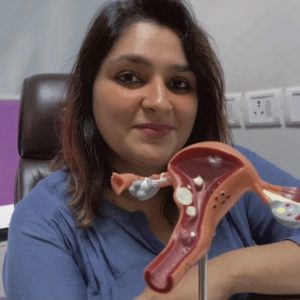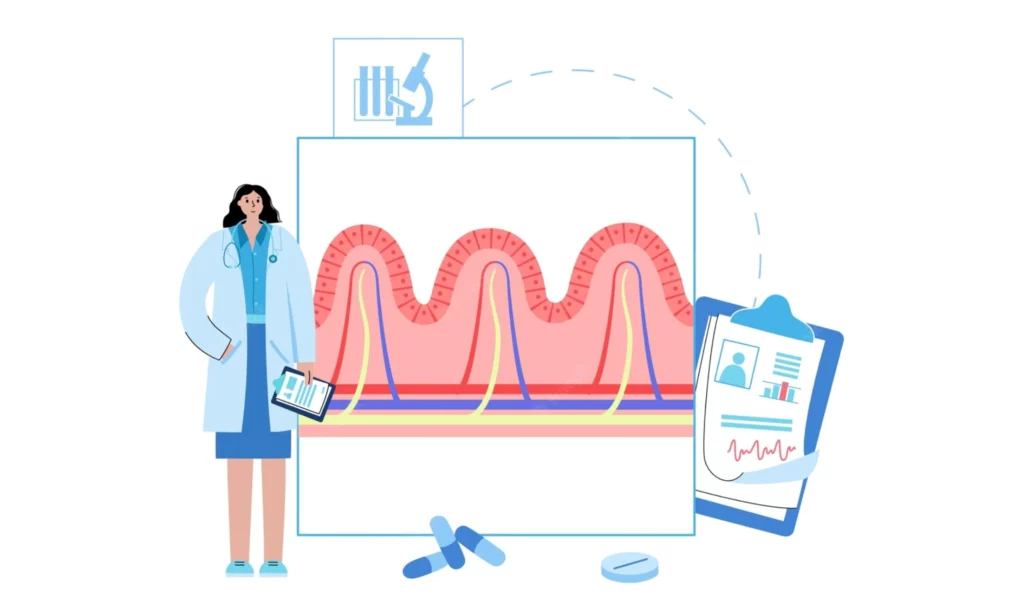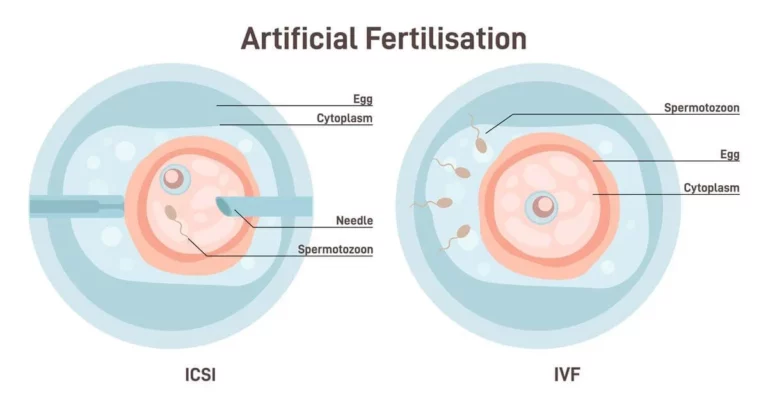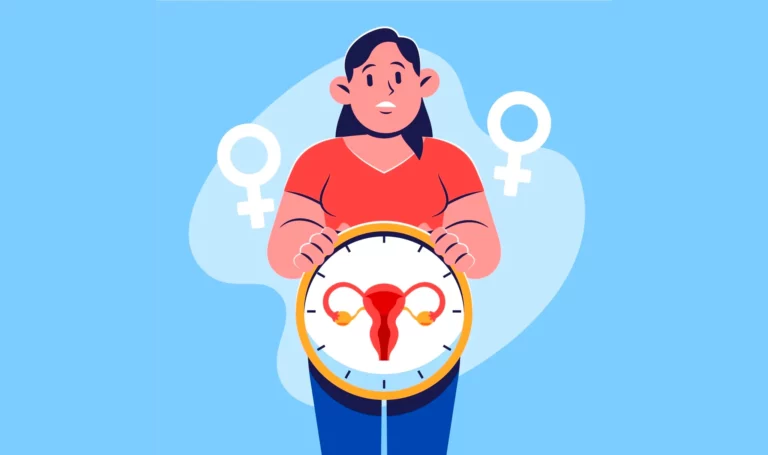Celiac Disease is a digestive disorder in which an immune reaction is triggered after gluten in foods is ingested. Gluten is a type of protein found in wheat, barley & rye. Exposure to gluten causes inflammation in the gut, hence ensuring store-bought food is labeled “Gluten-free” is very important if you add it to your diet with celiac disease. Gluten may also be present in foods such as pasta, breakfast cereals, bread, sauces, and ready meals and trace amounts are there in some medicines and supplements. As gluten is found in several food types, people with celiac disease need to be very restrictive and careful about their diet.
What is Celiac Disease?
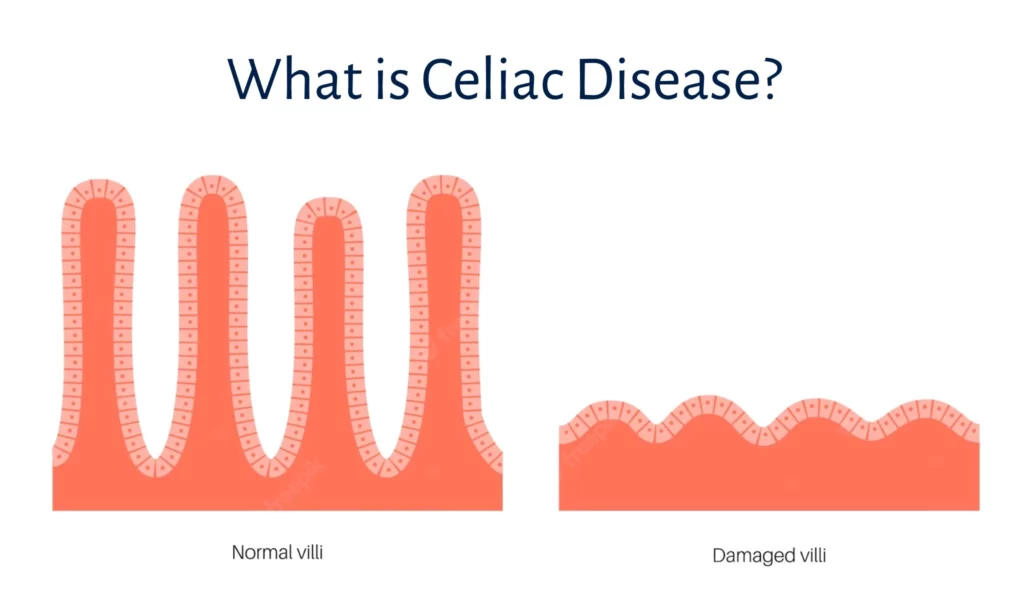
Celiac disease causes an abnormal immune reaction when gluten is consumed. This reaction produces toxins that destroy villi, which are tiny finger-like structures in the small intestine that are important for nutrient absorption. This can cause malabsorption of nutrients, leading to malnutrition. Celiac disease may also lead to intestinal damage. Therefore, if you have celiac disease symptoms you must discuss it with your doctor and remove gluten from your diet.
Celiac Disease Symptoms
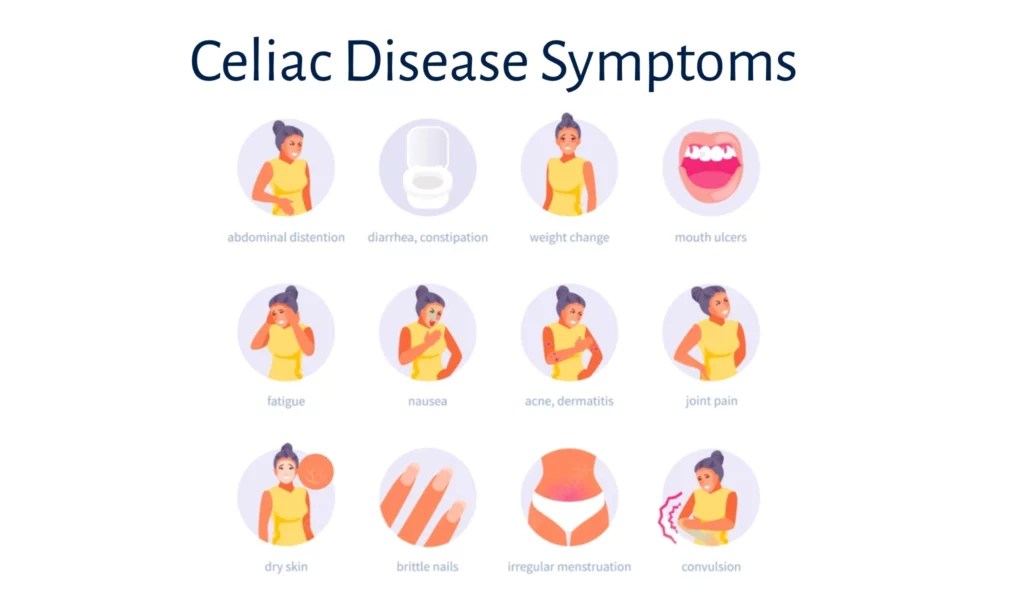
The severity of symptoms of the celiac disease depends upon the length of being breastfed in childhood, the amount of gluten in the diet, the age at which eating gluten began, and the severity of intestinal damage.
The symptoms of celiac disease are usually associated with the stomach and intestine but may affect other parts of the body.
Celiac disease symptoms in children include irritability, weight loss, vomiting, abdominal pain & bloating, diarrhea or constipation, and pale fatty stools that smell foul. Children with celiac disease may also experience problems in growth and have delayed puberty.
Celiac disease symptoms in adults are slightly different than those in children. They include –
- Digestive symptoms
- Joint pain & stiffness
- Fatigue
- Numbness and tingling in hands and feet
- Tooth discolouration and loss of enamel
- Pale sores on the inside of the mouth
- Infertility and miscarriage
- Irregular menstrual periods
- Weak and brittle bones
- Skin disorders
- Seizures
- Iron-deficiency anaemia
It is also possible that some people with celiac disease have no symptoms. It is important to tell your doctor if you have any of these symptoms, or if you think you are at an increased risk for celiac disease.
Celiac Disease Causes
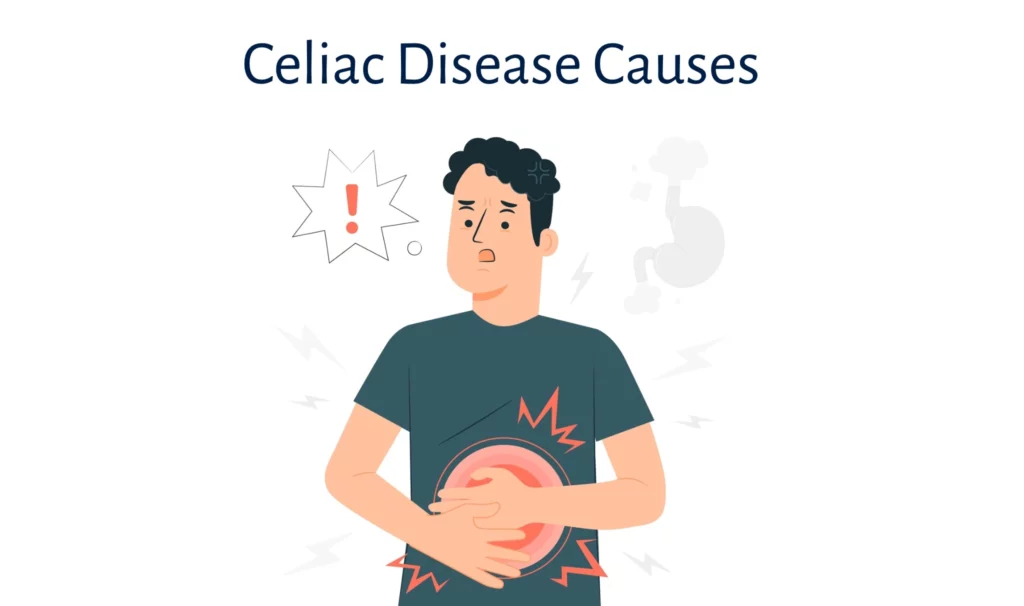
The causes of celiac disease are not well understood, however, it has been seen that some risk factors increase the chances of developing celiac disease. These include –
- Family history of celiac disease
- Environmental factors such as digestive system infection in childhood, the introduction gluten in an infant’s diet before 3 months of age, and babies not being breastfed when gluten is being introduced into the diet.
- Type 2 diabetes
- Ulcerative colitis
- Neurological conditions
- Down’s Syndrome
- Turner Syndrome
Celiac Disease causes aren’t clearly understood, but it has been noticed that people who have these conditions have an increased risk of it.
How is Celiac Disease Diagnosed
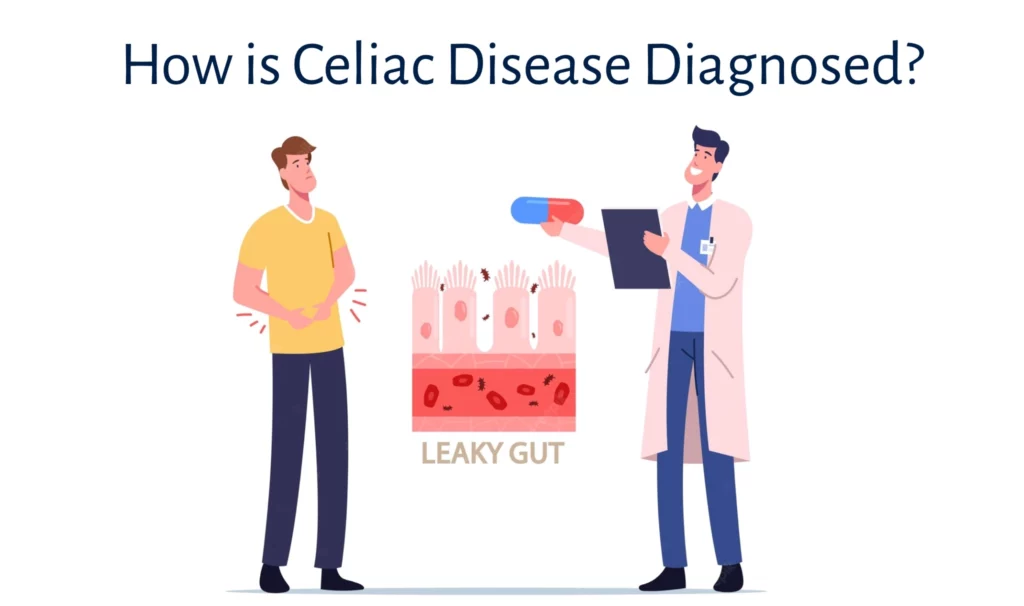
Your doctor would diagnose celiac disease after a thorough examination. Celiac disease tests could include physical examination, asking about your symptoms, medical history, family history, blood tests, skin biopsy, and endoscopy.
Testing for celiac disease is recommended if you have celiac disease symptoms, or if you are at an increased risk of developing celiac disease.
Celiac Disease Treatment
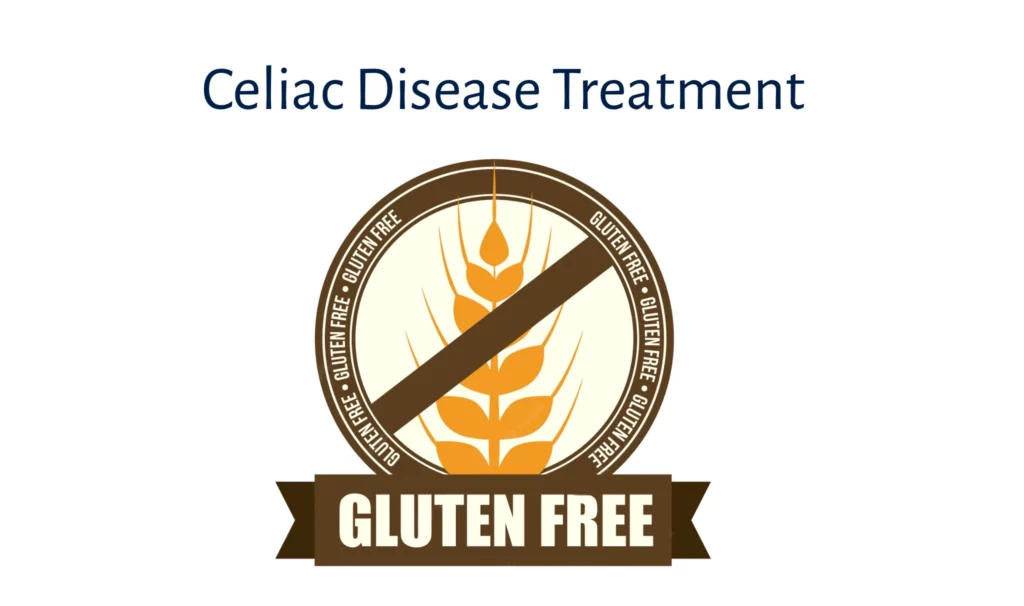
Dietary changes are the most important aspect of the treatment of celiac disease.
Your doctor will recommend you remove gluten-containing foods from your diet so that the villi inside the intestines can begin to heal and start absorbing nutrients. You will have to follow a celiac disease diet so that you can eat a nutrient-dense diet without gluten-containing dishes.
Celiac Disease diet would mean having strict food precautions, and avoiding foods containing –
- Wheat
- Barley
- Graham Flour
- Semolina
- Rye
After celiac disease diagnosis, it is important to avoid eating any gluten-containing food and strictly adhere to the celiac disease diet.
Foods such as bread, cakes, pies, beer, candy, and cookies are also best avoided unless they mention that they are gluten-free. Foods such as meat, fish, poultry, fruit, starchy vegetables, and most dairy products can be consumed in a celiac-disease diet. If you’re unable to plan a way to start eating these foods, you can consult a dietician to help you make a plan that’s sustainable and effective. Never make any dietary changes without consulting your doctor, as that can lead to nutritional deficiencies.
Changing your diet can improve symptoms of celiac disease, and the intestines begin to heal. Your doctor may also prescribe medications and nutrient supplements to prevent nutritional deficiencies.
Impact of Celiac Disease on Fertility
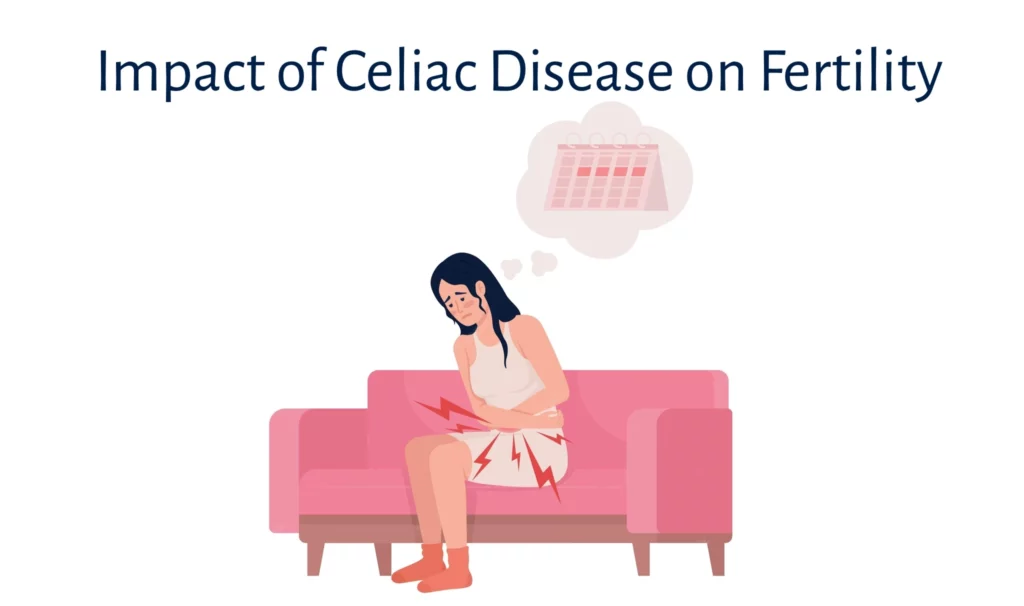
The impact of Celiac Disease on Fertility isn’t fully understood. However, since celiac disease can damage intestinal villi, it can cause issues in the absorption of nutrients, and thereby impact the overall health.
As celiac disease can cause a deficiency of important nutrients, it is important to start a celiac disease diet after consulting a doctor.
As celiac disease damages villi, the structures that absorb nutrients in the small intestine, it can cause malnutrition which may have a negative impact on the person’s fertility. A gluten-free diet for women trying to conceive may help minimize symptoms associated with celiac disease.
As undiagnosed celiac disease can impact nutrient absorption & immune system, it is important to consult a doctor if you think you are at an increased risk of celiac disease and want to start a family.
What to do If you get Celiac Disease

Dr. Reubina at Grace Fertility is a renowned fertility specialist who has helped thousands of people become parents through infertility treatments. She has a motive of making healthcare accessible & affordable. She has years of expertise a team of experts who help her deliver amazing results in infertility treatments. Transparency, ethics, and honesty are very important to Grace Fertility and each patient is treated with a customized and individualized plan. A one-size-fits-all approach isn’t beneficial in infertility treatments, hence a detailed examination and evaluation to come up with a treatment plan is crucial. Dr. Reubina ensures that science meets care at her clinic, and all her staff members reflect the same values. To know more, book a consultation today and start the journey to parenthood.

